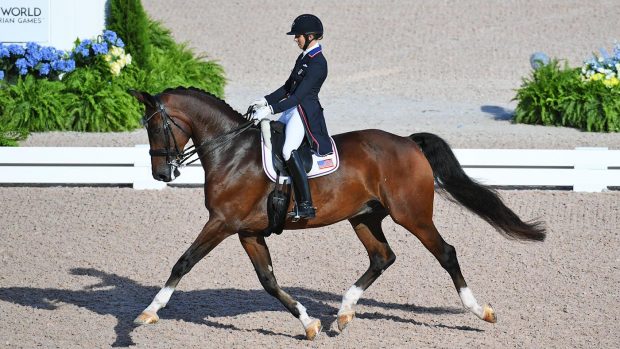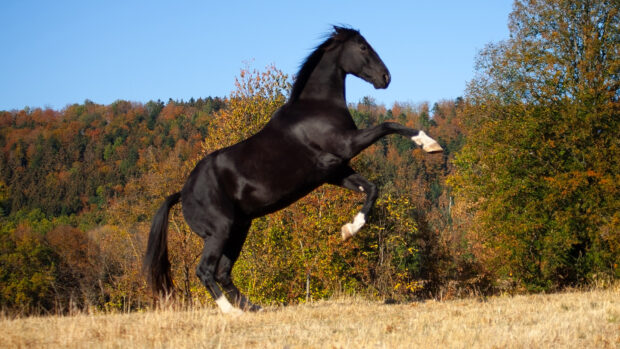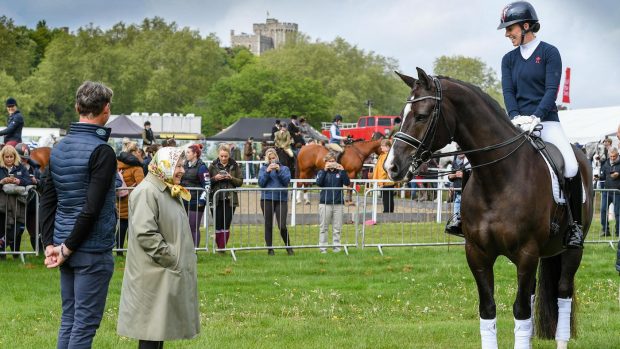Pre-purchase examinations have come under the spotlight in new research – along with the issue of relying on X-rays to identify issues.
Royal Veterinary College (RVC) researchers analysed 133 PPE certificates from three equine practices and considered factors including whether they were two- or five-stage examinations, if X-rays were taken, the horses’ prices and intended use, and the PPE outcome.
Among the findings, 57.1% of horses examined had “prejudicial findings”, and the most common was lameness at 55.3%. Some 14.5% of horses had diagnostic imaging findings, and 3.9% had cardiac abnormalities.
An RVC spokesman said there had been “limited research into PPEs”, and “although PPEs often follow a standardised process, the examination can only result in a recommendation based on the opinion of the veterinary surgeon at an isolated point in time. PPEs are therefore, in large part, a subjective process and often debated in the equine world”.
David Bolt, senior lecturer in equine surgery at the RVC and author of the research, told H&H that although this was a “sample size” study, it was surprising that such a large number of horses had prejudicial findings. But he added that it should be taken into consideration that the PPEs were carried out by a large number of different vets, of different experience levels.
The study also found that horses with a higher purchase price were more likely to have X-rays taken during a PPE, and “more likely to have prejudicial findings identified”.
Dr Bolt said X-rays in PPEs are a “very interesting topic”.
“Not all radiographic changes mean the horse is not going to be fit for purpose,” he said, adding that on the other hand, radiographic or other imaging may indicate a “developmental problem” that could cause issues in the future.
Dr Bolt mentioned scenarios where UK buyers import horses from abroad and X-rays are looked at remotely.
“In some circles, horses are bought indirectly by X-ray, where somebody gets tasked with looking at a set of X-rays. I think that’s quite dangerous, because you don’t see the whole picture. You need to see the animal itself and assess the animal clinically rather than just basing your diagnosis on imaging findings,” he said.
“In this context it’s important that if possible the person performing the PPE remotely is a person that either the buyer knows or is an advising veterinary surgeon to the buyer.”
Dr Bolt said a topic for future research could be the experience of the vets performing PPEs, and how this correlates to the horse’s purchase price.
“If you’re buying an expensive showjumper, you’re probably more likely to have a senior partner that you know perform the PPE, than a vet new to the practice or a locum,” he said.
“In the UK vets don’t need an additional qualification to perform PPEs. There’s quite a bit of [continuing professional development] CPD out there, but there’s no standard for assessors.”
Jason Tupper, RVC head of equine practice and study co-author, added that “few horses are perfect when it comes to temperament and health”.
“The vetting determines the issues and the vet can then help the purchaser weigh up their significance and decide if they can compromise and accept the issues or not,” he said.
“Further studies can now focus on the cost/benefit of radiology as part of the vetting procedure and the potential use of gait analysis.”
You might also be interested in:

Buying horses: why you can’t legally rely on a seller’s vetting

The definitive guide to the pre-purchase equine vetting

Subscribe to Horse & Hound magazine today – and enjoy unlimited website access all year round
Horse & Hound magazine, out every Thursday, is packed with all the latest news and reports, as well as interviews, specials, nostalgia, vet and training advice. Find how you can enjoy the magazine delivered to your door every week, plus options to upgrade your subscription to access our online service that brings you breaking news and reports as well as other benefits.




